|
Death Café hosted by The Heartway
Last Monday of every month from 3:30 – 5:00 PM PT via Zoom Explore the mysteries of death and transform perceptions about life's final transition at the Heartway Death Café, a welcoming, open, and safe environment to discuss any thoughts or fears about life, death, and beyond. Their objective is to foster an awareness of death that leads to a more fulfilling life! Join them on the last Monday of every month from 3:30 – 5:00 PM PT via Zoom (courtesy of the SusiQ -- the nurturing home of Laguna Beach Seniors). The next meeting is Monday, July 29, 2024. At their monthly online discussion groups, attendees become more intimate with death and transform their fears around the end-of-life transition. In a relaxed, open, and safe atmosphere, participants are invited to share any issues or fears surrounding life and death. Please note that Death Café events are a discussion group rather than a grief support or counseling session. Join facilitator Dr. Andrea Deerheart, Founder of The HeartWay, for a thought-provoking and inspiring discussion. Everyone is welcome! The FREE monthly Death Café features: - A relaxed, open, and safe atmosphere where attendees are invited to share issues surrounding life and death - A focus on increasing awareness of death to help participants and their loved ones make the most of finite lives - A respectful, and confidential space, with no agenda— there is never any intention to lead people toward a conclusion, product, or course of action Find out more and register at www.theheartway.org/death-cafe
0 Comments
Death Cafe Boise
Tuesday, January 16, 2024 Boise Public Library in Collister Center, 4724 W State St, Boise, ID 83703 Join the Death Cafe Boise for their next gathering at the Boise Public Library in Collister Center, 4724 W State St, Boise, ID 83703 from 6-730pm on Tuesday, January 16, 2024 in their conference room. The Death Café provides an opportunity for an open conversation about death. Facilitators will guide the process. Join the conversation, and please bring your curiosity, your interest, and your experiences. All are welcome and invited to participate! Free to attend, and no registration is required. Tea and cookie will be provided. For more info on the international Death Cafe movement, visit www.deathcafe.com Visit https://www.facebook.com/boisedeathcafe to learn more, or for specific questions for the facilitators of this event in Boise, email [email protected] Supporting Youth Grieving Homicide Deaths FREE Webinar
Please join Highmark Caring Place on Wednesday, September 6, 2023, from 2:00-3:30 PM (Live ET) for their next webinar in the Grief Talks Educational Webinar Series, “Supporting Youth Grieving Homicide Deaths.” They are excited to highlight the expertise of Samantha Anthony, Senior Clinician from the Uplift Center for Grieving Children this month! To register, visit: https://bit.ly/grieftalkshomicide Death Café Boise
Dry Creek Cemetery, 9600 Hill Rd, Boise, ID 83714 Enter off Old Hill Road and park by the cemetery office Wednesday, July 12, 2023 from 7:00 - 8:30 PM MT Join the Death Café Boise for their next gathering outside in the evening at Dry Creek Cemetery (9600 Hill Rd, Boise, ID 83714) from 7:00 - 8:30 PM MT on Wednesday, July 12, 2023. The Death Café provides an opportunity for an open conversation about death. Facilitators will guide the process. Join the conversation, and please bring your curiosity, your interest, and your experiences. All are welcome and invited to participate! Free to attend, and no registration is required. Bring a camp chair and a water bottle to join us under the giant oak tree in the oldest portion of the cemetery! For more info on the international Death Café movement, visit www.deathcafe.com Visit https://www.facebook.com/boisedeathcafe to learn more, or for specific questions for the facilitators of this event in Boise, email [email protected] Boise Death Café
January 10, 2023, at 6:00 PM MST Boise Public Library in Collister Center (4724 W State St, Boise, ID 83703) The Boise Death Café provides an opportunity for an open conversation about death. Facilitators will guide the process. You are invited to join the conversation and bring your curiosity, your interest, and your experiences. All are welcome and invited to participate! Free to attend and no registration required. Cookies and tea will be served! The next meeting of the Boise Death Cafe will be on January 10, 2023, at 6:00 PM at the Boise Public Library in Collister Center (4724 W State St, Boise, ID 83703). For more in the international Death Cafe movement visit www.deathcafe.com For specific questions for the facilitators of this event in Boise email [email protected] El Día de Muertos / Day of the Dead
El Día de Muertos, or the Day of the Dead, is a a joyous tradition from pre-hispanic times that has become a beautiful day of commemoration and remembrance of deceased loved ones. Celebrated mostly in Mexico and parts of South and Central America, Day of the Dead has also become increasingly popular in many communities around the world. It is a special day set aside to assure that people are not forgotten and still remain present in our lives. It is a day to pause our grief and mourning and celebrate the departed with activities they enjoyed, food, drink, dancing, dressing up, and singing. Through these ways we continue and embrace our relationships with the ones we love and miss. Do you celebrate Día de Muertos? If so share in the comments the ways you commemorate your loved ones. Death & Donuts
Death & Donuts meets on a monthly basis to have candid, open discussions about all end-of-life issues in a comfortable, cheerful atmosphere via Zoom. Come with an open mind, a healthy curiosity, and a willingness to share your thoughts, feelings, and questions with other like-minded individuals. Topics are determined by the group. All are welcome. For more information and to register, email Jillian Brinkley at [email protected] Check out the Facebook page at: https://www.facebook.com/AlexandersDandD 9/26/2020 The Do’s and Don’t’s of Talking With a Child About the Death of a Loved One - By Guest Blogger Danica ThurberRead NowThe Do’s and Don’t’s of Talking With a Child About the Death of a Loved One 1 in 5 children will experience the death of someone close to them by age 18. (Kenneth Doka, Editor of OMEGA, Journal of Death and Dying) Talking to a child about death may be one of the hardest things you have to do in your life. I conducted a survey in early 2020 about parents’ experiences with helping their children talk about and grieve the loss of a loved one. One respondent’s answer was very telling: [M]y husband, their father, died. Telling my kids was even more painful than his death. That’s what makes this topic so complicated: along with starting difficult conversations with your children, you yourself may be deep in the throes of grief for the loss of the same loved one. While I wish that there was a way to lessen your pain, I have found that there are several things you can bring into conversations with your kids to make it easier. As another survey respondent wrote: Knowing the right language and having guidance on how to talk about death can help make the conversation less scary and have the confidence the conversation is healthy. The following tips will do just that - provide guidance that can help you have some structure, as well as some confidence, as you enter the unknowns of these difficult conversations with your children. DON’T SOFTEN YOUR LANGUAGE - BE DIRECT “We speak of heaven and of illness. We do not use words such as ‘she went to sleep’... It can be hard at first to be direct, but two years later we see great fruit from the hard conversations.” - 2020 survey respondent It can be tempting to soften the blow by softening your language (“he passed away,” “she went to heaven in her sleep”). However, kids don’t necessarily grasp the nuances of adult language. For young children especially, it’s important to use the words “dead” and “death” and then to describe what that actually means. For example: “… explain that when someone dies their body stops working, they can’t eat, talk, feel, etc. That their heart and lungs stop working…” - 2020 survey respondent My children’s book, “Lulu Faces Loss and Finds Encouragement,” portrays this type of direct conversation in a simple and emotional way. The main character, Lulu is eight years old, and because this is her first major loss, she needs to know precisely what death means as it applies to her relationship with her Grandma: Once a child understands the physical reality of death, you can then explain it in terms of your family’s spiritual beliefs regarding what happens after death. If you’re facing an impending death, you’ve got a good opportunity to be honest with children now about a loved one’s prognosis. I know it’s hard to be honest about this, because you may be having a hard time accepting their prognosis as well. However, talking about what will happen when the loved one dies, as well as who will take care of them, and then answering their questions, will greatly help them prepare for a loved one's impending death. “My husband was diagnosed with an aggressive form of cancer in 2016. He died in May 2019. [A]long the way we worked to be honest with our kids about how serious it was while also not wanting to burden them more than was necessary.” - 2020 survey respondent SHARE APPROPRIATELY Kids though, take all their cues from their parents. While I was in deep traumatic grief, I tried to remain/appear steady for them. - 2020 survey respondent The concept of death is something that is acquired as a child matures and goes through life experiences. Explaining death using concepts that are either too old, or too young for the child, may cause more frustration and hurt. It may be helpful to research developmental understanding of death before approaching your conversation with your child. Cancer.net has a very helpful summary. According to cancer.net, school-aged children (6-12 years old) are able to understand that death is final (AKA, irreversible regardless of what they think, say or do). However, they may still think of the deceased person existing in a changed form, such a spirit, like a ghost, angel, or a skeleton. “By age 10, [children can] understand that death happens to everyone and cannot be avoided,” that is, they understand the universality of death. They may be interested in the specific details surrounding the circumstances of that person’s death, or what is being done to the body (autopsy, cremation, burial). School-aged children “[m]ay experience a range of emotions including guilt, anger, shame, anxiety, sadness, and worry about their own death,” and they may also incorrectly assign blame to themselves, thinking they somehow caused the death. Every child will experience grief differently, but some may “[s]truggle to talk about their feelings. Their feelings may come out through behaviors such as school avoidance, poor performance in school, aggression, physical symptoms, withdrawal from friends, and regression.” In addition, school-aged children “[m]ay worry about who will take care of them, and will likely experience feelings of insecurity, clinginess, and abandonment.” In light of this age-centered understanding of death, when talking to a school-aged child about death, you may:
REASSURE THEM “Helping them know their dad is still with them, loves them and is proud of them.” - 2020 survey respondent A child’s sense of security is rocked when a loved one dies. Speaking from my own experience of childhood loss, I know that children will need an abundance of reassurance in the coming weeks and months in order to recover that loss of security. DON’T say things like these:
Hopefully you can detect the cringe-worthy burdens lurking behind these words. While these phrases may have the appearance of reassurance, they only serve to stifle a child’s grief because of an expectation of how they “should” or “shouldn’t” be feeling. Instead, here are some things you can do repeatedly (keyword!) in conversations with your school-aged child:
LET THEM LEAD “I try to just meet them wherever they are emotionally. If they want to talk, we talk. If they want to cry, we cry. If they want funny stories, we tell funny stories. I have found in my own grief, that grief is much more bearable if you’re allowed to talk about it & live in it. So i try to do that for them too.” - 2020 survey respondent It’s commonly said that a child’s inability to cope with trauma or big emotions is the their mind’s way of protecting them. Children will tend to express their grief in small spurts, rather than in long, drawn out seasons, as an adult would. In between these spurts, the child may seem completely fine. According to cancer.net, “A child’s grief may seem to come and go. And a child may rarely verbally express his or her grief. This is normal. Your child may also re-experience the intensity of the loss as he or she grows up.” It’s almost as if the loss needs to be re-processed with each developmental stage they pass. I’ve certainly found this to be true in my own experience. DON’T force a child to engage in a grief activity. Have activities such as a trip to the cemetery, a book about loss, or a therapeutic art activity ready to go for when they seem to be feeling sad or when they bring up a question. Let the child’s emotions lead you, but don’t be afraid to ask questions, either. You might also learn more from an overheard conversation during play time, or their recent drawing of the family. “When the boys were 3 and 5, their brother died as a result of a birth defect […] We learned to be more in the moment when it came to grief for them-they would be sad and ask why he had to leave one minute and then be totally ok the next.” - 2020 survey respondent WHEN TO SEEK HELP If you yourself are emotionally incapacitated by the loss of a loved one, it can be near impossible to provide the support your child needs. It takes so much courage to recognize that you need help. Attending counseling and seeking social support from other trusted adults will help not only you, but your child as well. Pay special attention to signs that your child may be having an especially difficult time coping with a loved ones death:
See source link here. YOU CAN DO THIS While you’re the adult in the situation, that doesn’t mean you have to have it all together, or provide all the answers. A listening ear, a comforting hug, and a willingness to answer questions will go a long way towards helping a child cope with the loss of a loved one. Remember, you’re allowed to grief, too. Showing at least some of your grief in front of your children shows them that it’s perfectly ok to feel their grief too. A family that learns to grieve together, no matter how messily, will be able to help each other find strength and hope as they navigate a loss, together. Books can be helpful tools for both you and your child. They can be conversation starters, as well as give you a tangible reference point for discussing things you don’t have words for (“remember how in the book, Grandma lost all of her hair? That’s what will happen to your mom soon.”). If you’re looking for a book that can help you and your child talk about things like death, cancer, hospice, or the loss of a grandparent, check out “Lulu Faces Loss and Finds Encouragement,” available on Amazon on October 20, 2020. AuthorDanica Thurber is a professional artist, therapeutic art Life Coach, and art teacher. She's also the art ministry director at Vineyard Boise. Visit her website at https://projectgrief.org/ 2/6/2020 Death, Loss and Grieving For Little Ones: A Family Storytime & Art Project - 08 Feb 2020Read Now
|
Details
Sara J. CobbFounder, My Grief Connection Archives
July 2024
Categories
All
Note: The website contains some affiliate links, which means that if you purchase something through one of these links we may receive a small commission
– at no extra cost to you. I only promote things I have have either personally tried or strongly believe are beneficial. Any commissions earned helps keep this website going. Thank you for using our affiliate links to help My Grief Connection to continue helping grievers find help & hope. Not responsible for the content, claims or representations of the linked sites, videos, movies, podcasts, groups, events, books, articles, etc. This site provides links and general grief support information and is not intended to serve as or replace professional counseling, guidance or treatment. If you are thinking about hurting yourself or someone else, please contact 911 or the suicide hotline at 988. For any type of crisis situation you can text CONNECT to 741741 to chat with a Crisis Text Line counselor. My Grief Connection - Created 04 July 2019 - Privacy Policy This Page Was Updated On 26 July 2024 © 2019-2024 My Grief Connection
|

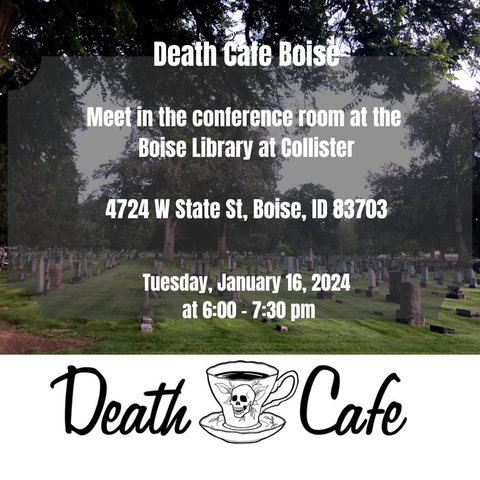
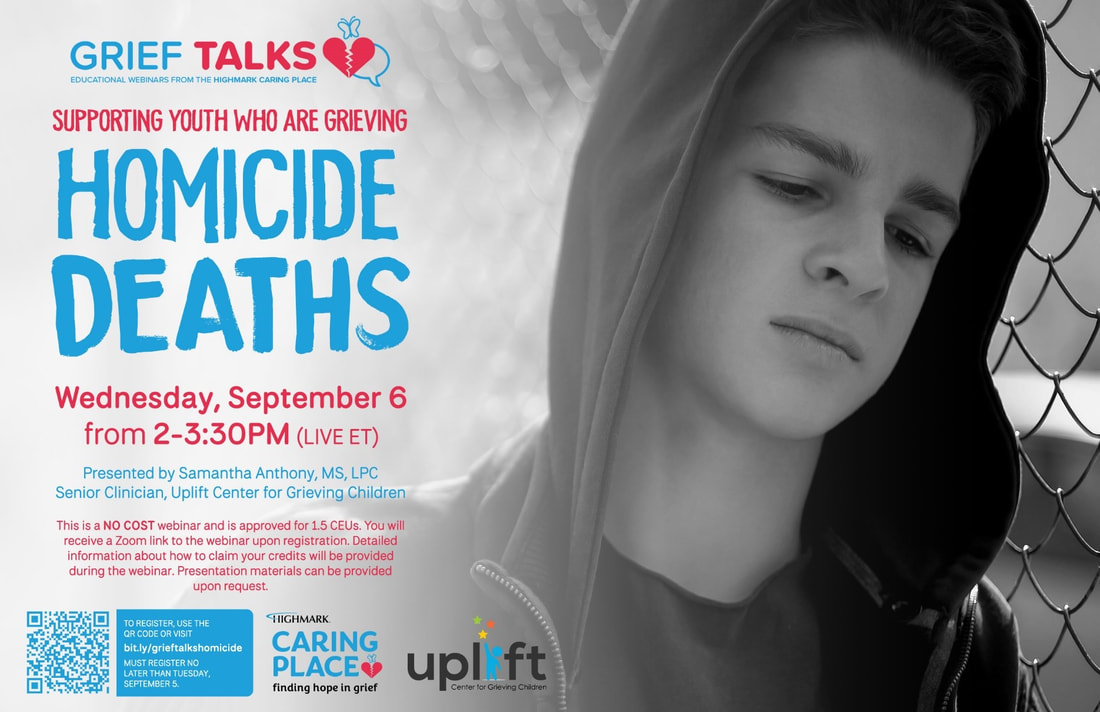
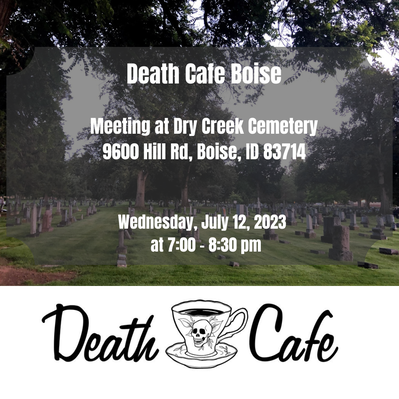
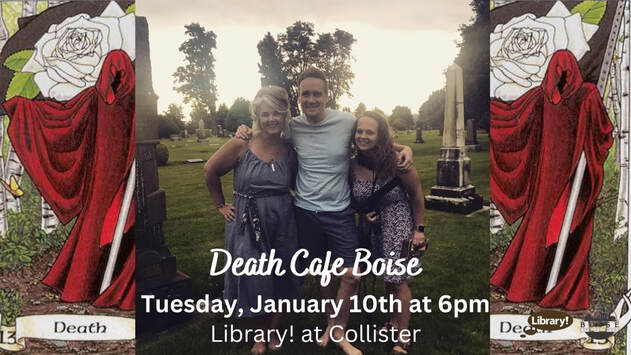
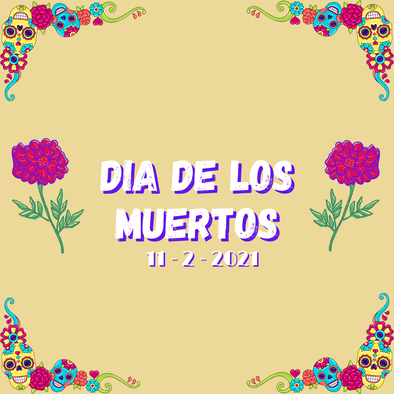
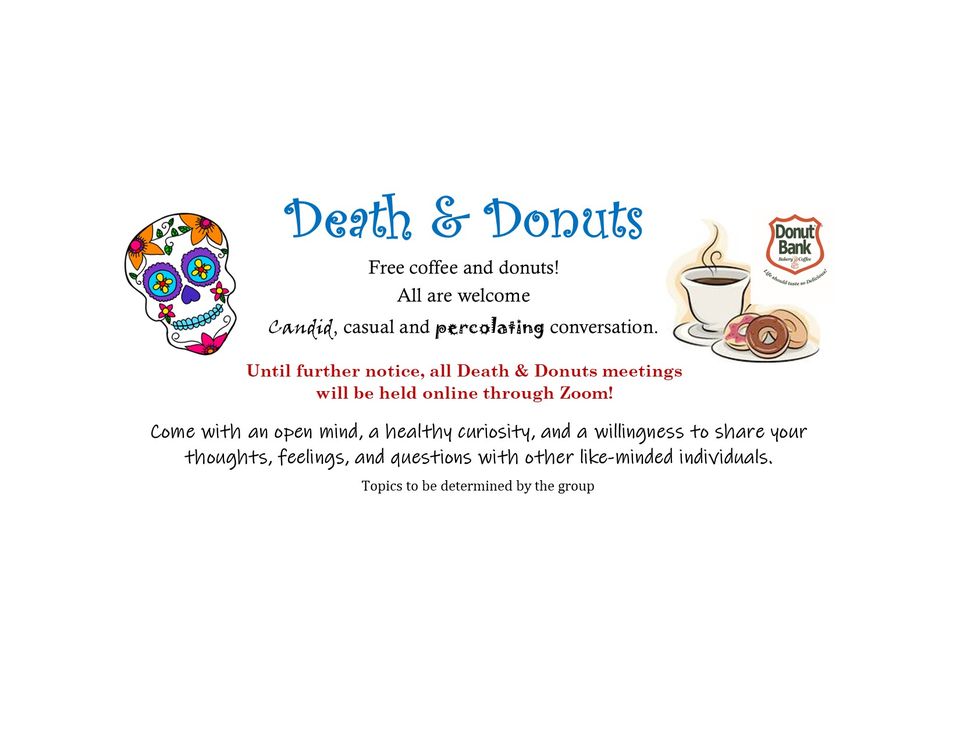
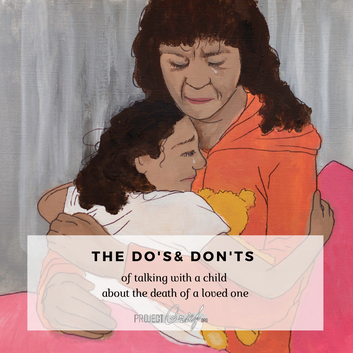
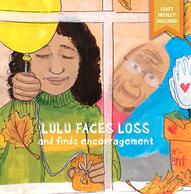
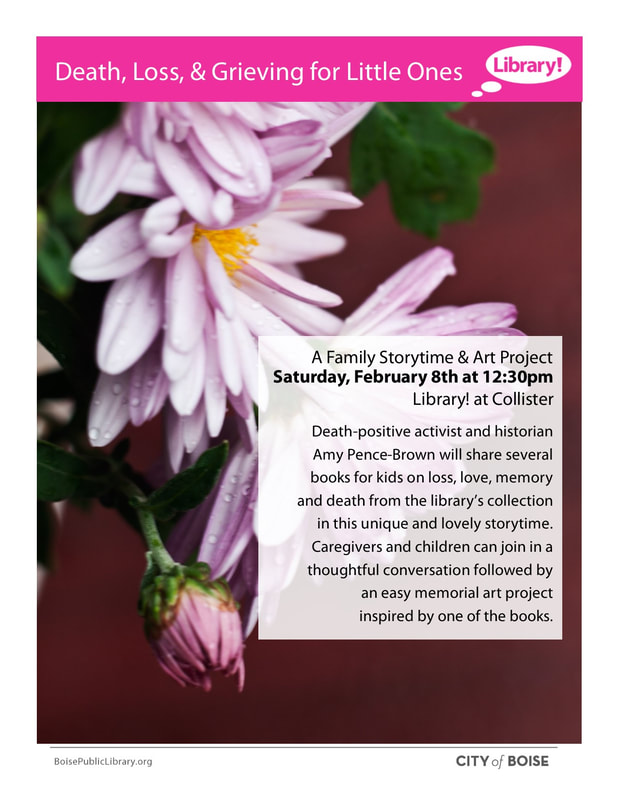
 RSS Feed
RSS Feed